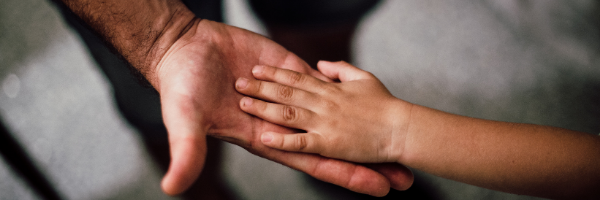When I initially came across this [concept], I was skeptical. I saw it as another new-aged philosophy. But once I got over the well-marketed phrasing of the name and started to explore the lessons and teachings, I was blown away.
There is no handbook for raising children, yet the process to get a tertiary qualification, a drivers license, or married requires time and money spent in preparation to attain these things. Anyone can have children, regardless of their education, wealth or status. How do we then create a world where children can thrive and feel like they belong?
This is where Conscious Parenting comes in.
It begins with us as parents and how self-aware we are.
As adults, we carry half a lifetime of unresolved issues and past traumas. Because of these unprocessed emotions, we project them onto our children and raise them according to how we were.
How often do you find yourself repeating the very words of your parents?
With our past experiences, behaviours, habitual patterns and upbringing, can we raise children to be self-aware, independent and generally good people?
The answer is yes, but it takes work – inner work.
I have outlined three concepts of what it means to be a Conscious Parent. Some of these might be completely contrary to what you think and will challenge you as they did to me. But to see things clearly, we first need to clean and demystify our lens or view of the world.
Do less
As parents, we want to give our children a better life than we had. So we give more of our time, money and energy, and we consider ourselves fortunate to do this – to give the next generation a better footing in life.
Good intentions are a red flag.
We are assuming we know what is right for our children, not what is right for them.
We are blinded by the fear, hurt or lack we experienced, so we overcompensate through our actions.
Ultimately, the best thing we can do for our child(ren) is to give them space to blossom, whether it suits our lifestyle and values, or not! Let them discover who they are, what they are passionate about and where they can serve.
Of course, the major challenge here is that we are not fully actualised. Many of us are bound by past conditioning that created a narrow world-view. It is one of the main causes of conflict between parents and children. Parenting is not about doing lots of things for our kids; it is about being an example and a role model. We need to allow our children to make mistakes and take accountability because this makes pleasant, trustworthy, self-motivated people. The more we do, the less they can.
Teach less
Children are born mostly unhindered and naturally curious. But – all things going well – babies and toddlers are generally incredibly tuned in to themselves and the environment. They have not learned fear and self-doubt so are free to be who they need to be.
Unfortunately, many of us have come from families and cultures whereby children are seen and not heard and need to be taught how to change into something suits the ideals.
From past generations to today, the cycle continues.
What if we changed our perspective from command-and-control and tapped into the wisdom that children can offer us? If we give them a chance, they can remind us of some of the most valuable life lessons. Like how to love unconditionally (nobody does that better than a child), how to be present (children have not learnt how to worry about the past and future) and how to live with a sense of ease and confidence that only comes from embracing our true creative nature.
The less we teach them, the more they can learn.
Love less
Who does not love holding a newborn baby? Having something in our arms that is so innocent and fragile connects to a very primal force within us – the need to nurture and to leave a legacy.
Love is not love when it is security, flattery, infatuation or the need to feel needed. We need to question our motives sometimes and ask ourselves some difficult questions.
Do any of these resonate?
- An over-controlling parent could be a sign of lack or the loss of control growing up.
- An over-bearing parent could be a sign of loneliness or a need to be heard.
- A parent who is not present or spends too much time at work could feel unworthy. “Am I good enough to be a parent?”
- A parent who lashes out could have struggled with past hurt or PTSD.
If we had to love a little less, we create space between our shadows or traumas and our children. After all, our children are not our property. We do not own them, nor are we responsible for them. We are only responsible for ourselves.
We have done well as a parent when our children learn to become responsible for themselves.
Conscious parenting is a purposeful journey of recognising and overcoming our fears and failures. Only once we have become integrated, we can give our children what every person desires most – a life of meaning and purpose.





